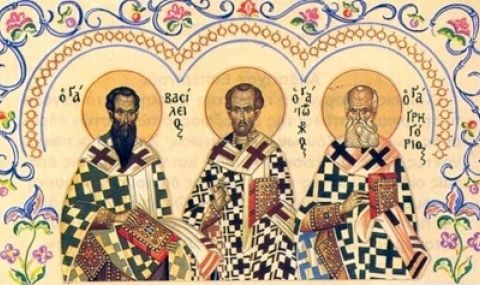By giving equal honor to the three holy saints Basil the Great (379), Gregory the Theologian (390) and John Chrysostom (407), the Holy Church testifies that they are equal before her judgment in gifts, merits and holiness.
These giants of holiness, evangelism and theology, whom God Himself bestowed on His Church in the difficult days of its anti-heretical struggles, shone with immortal light after their blessed departure from the world. Before their dazzling gifts and imperishable offerings, the holy assembly of the universal Orthodox community continued to worship. The growing enthusiasm of Christian believers since the 5th century turned for many into a dangerous fascination with inappropriate preferences. In Constantinople in the 11th century, a real division occurred between the believers, who began to declare themselves "Basilians", "Gregorians" and "Johannites".
The gracious intervention of the three saints themselves, who dedicated their entire lives to church unanimity and universal Christian peace, was necessary. They appeared in a vision to St. John of Euchaitis († c. 1095), who became Metropolitan of Euchaitis during the time of the Byzantine Emperor Alexios I Komnenos (1048-1118). And from eternity the great saints showed loving care for the Church, which was threatened by disturbances due to the unreasonable love for their memory. They ordered the Euchaite saint John to tell the Patriarchate of Constantinople to declare a calendar day for their common celebration, which would confirm the truth of their equal dignity before God.
In 1076, January 30 was declared such a day. John of Euchaite composed a solemn service for the newly established holiday. In recent times, it has also been a holiday of Orthodox theological faculties and theological academies.
